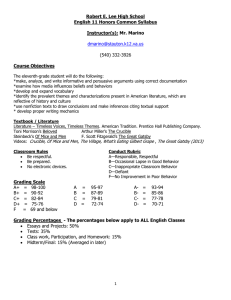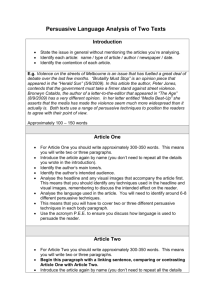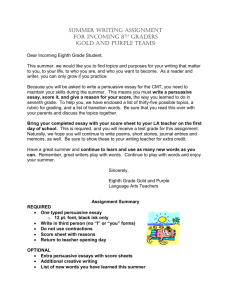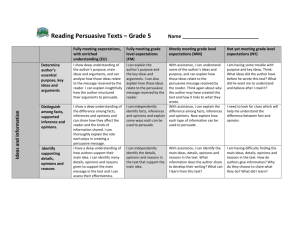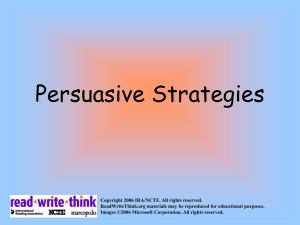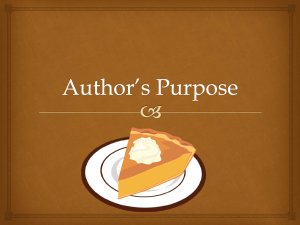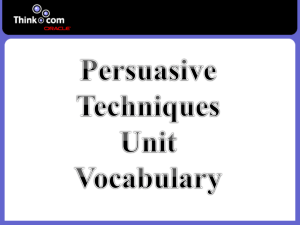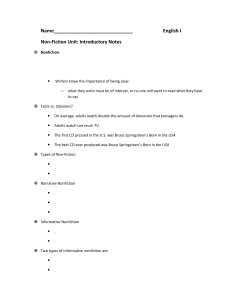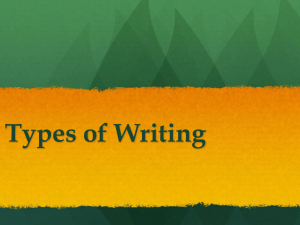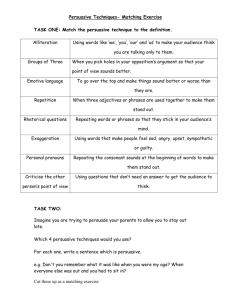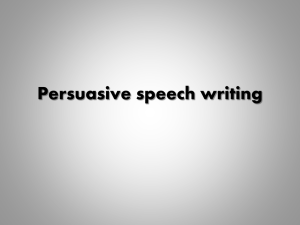The Eternal Frontier
advertisement
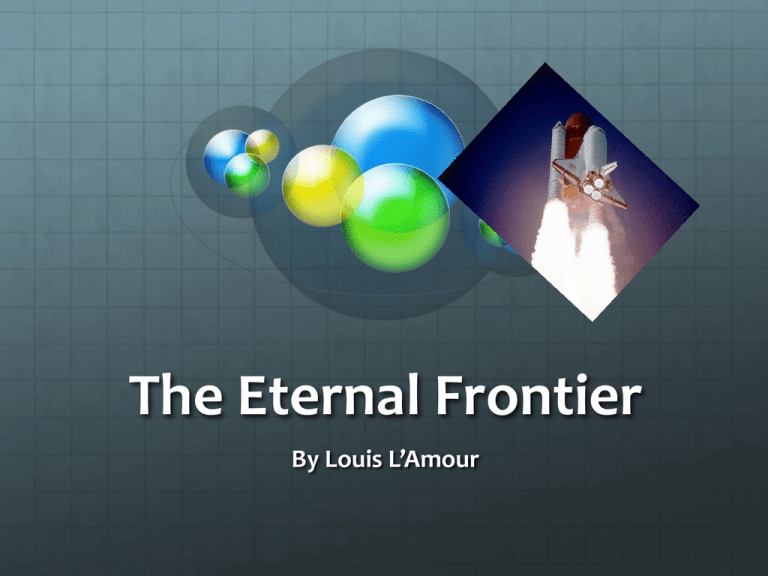
The Eternal Frontier By Louis L’Amour Before Reading: Connect to Your Life Label the next available page in your LNb “The Eternal Frontier.” Then answer the following questions in complete sentences. What frontiers would you like to explore? What qualities does it take to be an explorer? What do you think the future of the space program should strive to achieve? Before Reading: Understand Vocabulary Context clues can help you to recognize a word’s meaning. Sometimes a sentence will include a familiar synonym that is used in addition to the unknown word. In the examples on the next slide, look for the synonym (found in the sentences) for each boldfaced word. Before Reading: Understand Vocabulary The countries hope to incorporate their programs in order to combine their efforts in space. The multitude watching the liftoff on television added up to the biggest crowd ever. The loss of the probe was devastating to the budget but not destructive to the spirits of the scientists. I recommend that remedy as an antidote to motion sickness. The desire to be an astronaut was the impetus that gave him the force to succeed. Reading 1: Persuasive Essays A persuasive essay is a type of nonfiction work that offers an opinion on a subject and tries to sway readers to accept that opinion. A persuasive essay appeals to both the mind AND the heart of the reader. Writers support their arguments using different types of evidence, including: Facts- statements that can be proved Statistics- facts stated in numbers Examples- specific instances that demonstrate the point Quotations- statements made by experts Reading 1: Persuasive Essays Persuasive essays may be evaluated based on how well the author supports his or her opinions. Writers use evidence to help convince the reader that their claims (opinions) are correct. Questions to ask when evaluating include: Is the evidence used adequate? Is it accurate? Is it appropriate? What are the writer’s biases? Group Discussion Questions Why does the author consider the moon, asteroids, and planets “stepping stones”? What point is the author making about the future by noting the rapid advances of the previous 70 years? What does not restrict human beings, according to the author? What one objection to his argument does L’Amour address? What are some of the benefits that people have reaped from the space program? Reading 2: Evaluating Evidence When writers of nonfiction give a strong opinion about something they believe in, they are making a claim. Claims must be backed up with evidence. Evidence allows readers to decide whether they agree with the claim made by the author. Reading 2: Evaluating Evidence Evidence must be: Adequate– this means there is enough evidence to convince the reader. Appropriate– this means that it supports the case that the author is trying to make. Accurate– this means that it is correct and provable. You can also look at entertainment, believability, originality, and emotional power. Reading 3: Identifying Author Bias When a writer is said to have bias, he or she is stating an opinion in favor of one side of an argument or issue. This means they are allowing their opinion to influence what they write about it. To determine if writing is affected by bias: First you need to identify the PRIMARY claim made by the author. Then look for opinions that the author uses to support this claim.

